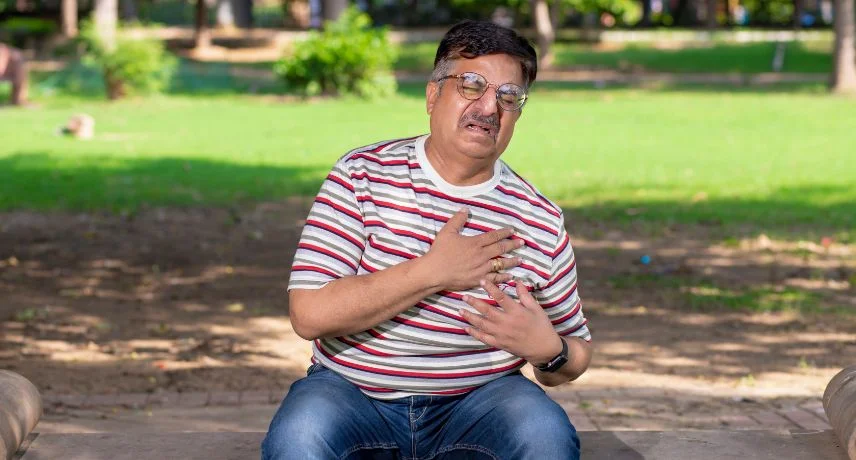23rd June, 2023

All chest pains are not heart attacks and all heart attacks may not be associated with chest pain.
In today's society, heart attacks have become alarmingly prevalent due to the sedentary lifestyles and the overconsumption of foods high in saturated fats. These factors have contributed to a significant increase in the number of individuals experiencing cardiac arrest each year. However, recognizing and diagnosing a heart attack can be quite challenging, and it is essential to dispel the common misconception that chest pain always accompanies such an event.
According to the doctors at the best heart hospitals in Kolkata, not all chest pains indicate cardiac arrest. While chest pain or discomfort is a common symptom, especially in men, it is not the only indication of a heart attack. Women and older adults, in particular, may experience different symptoms or subtle warning signs that are often overlooked or attributed to other causes. Here we discuss some of the useful insights on chest pain and heart attacks.
Non-cardiac chest pain can result from several health conditions. Here are some of the common health conditions that can result in chest pain :
Heart attacks can happen unexpectedly, without providing clear warnings in advance. However, individuals experiencing a heart attack may notice additional signs and symptoms, apart from chest pain, that indicate a cardiac emergency.
Heart attack symptoms are not limited to chest pain alone. Discomfort or pain can also be felt in other parts of the upper body. Along with the chest, heart attack patients may experience pain or discomfort in the arms, neck, stomach, back, or even the jaw.
Shooting pain in the arms, in particular, is a significant warning sign of an impending cardiac arrest. If you observe any of these symptoms, it is important to seek immediate medical attention by contacting emergency services without delay.
A person suffering from a heart attack may face difficulty breathing without necessarily suffering from any chest pain. If the concerned individual does not have any respiratory conditions, this can be a major indicator of cardiac issues.
Unexplained, excessive sweating often accompanies a heart attack. This sweating may be cold, clammy, or drenching. Other signs to watch out for include sudden nausea and lightheadedness. When such symptoms appear, remain seated and contact the nearest hospital immediately.
When facing one or more of these symptoms, the patient must lie down immediately and stop all physical activities. Removing any tight fitting clothes from the chest area can ease some of the discomfort during such times.
If you notice a sudden and uncharacteristic chest pain or face any of the aforementioned symptoms, do not delay contacting emergency medical services. The doctors will evaluate whether you are actually undergoing a cardiac arrest and transport you to the hospital when necessary.
Heart attack is always of sudden onset and always is an emergency. Heart attack occurs when one of the coronary arteries ( arteries supplying oxygen to heart muscle) gets occluded completely. But partial occlusion of the heart arteries start long before the onset of heart attack. So early identification of this condition is essential to prevent future heart attack.
As mentioned previously, you must be able to identify the early signs and symptoms of the heart disease that can predispose someone to heart attack and seek timely help. Moreover, regular health checkups can detect any cardiovascular diseases before it progresses into a full-blown heart attack.
However, in the event of a heart attack, seeking cardiology treatment within the golden hour becomes crucial. Golden hour is nothing but the first 3 hours after the onset of signs and symptoms of heart attack. Providing quality medical care within this golden hour improves the chances of survival substantially and also improves the quality of life.
As is evident, time is of the utmost essence in case of heart attacks. When such a life-threatening situation arises, only the most trained and qualified cardiologists can help.
At Peerless Hospital, we take pride in our exceptional team of highly skilled professionals, including cardiologists, cardiothoracic surgeons, anaesthetists, perfusionists, nurses, and other dedicated paramedical staff. Together, we provide comprehensive and affordable cardiology treatment to our patients.
To ensure the highest quality of care, we have a dedicated cath lab equipped with state-of-the-art technology. Our modular operation theatres are designed to meet the stringent standards of cardiac surgeries, providing a safe and sterile environment for procedures. Our 30-bed modular Intensive Coronary Care Unit (ICCU), Intensive Treatment Unit (ITU), and 6-bedded Cardiothoracic and Vascular Surgery (CTVS) ITU ensure that patients receive specialised care during critical stages of treatment.
Additionally, we have a cardiac step-down ward to facilitate a smooth transition to recovery. Our commitment is to provide affordable and accessible cardiology treatments without compromising on the quality and safety of our patients.